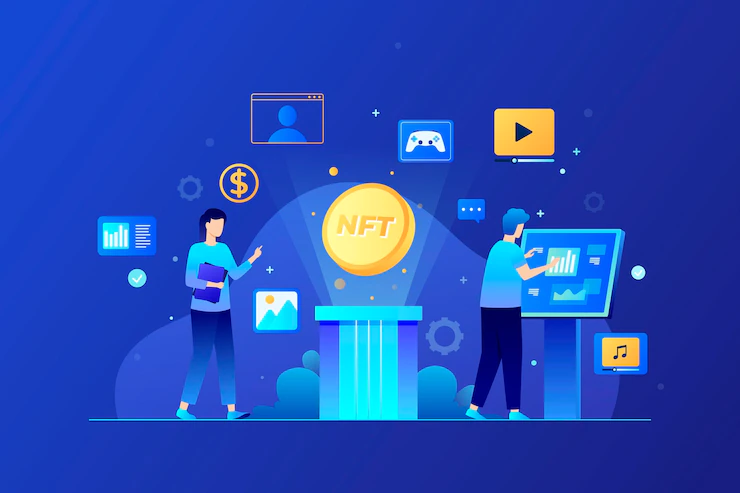
They may be utilized in various fields, including gambling, healthcare, and real estate, as well as to set up complete company structures.
Cryptocurrency has attracted the interest of a lot of people. That’s why it’s popular nowadays.
What Are Smart Contracts?
The term “smart” refers to the fact that these new contracts are significantly more useful than their paper-based predecessors. There is no mention of artificial intelligence. A smart contract is a set of digitally stated promises and protocols that allow the parties to fulfill these promises.
In terms of DeFi, the blockchain cannot evaporate. In contrast to centralized finance, they are inventive because of this. On computer networks, it has been revalidated several times.

Smart contracts are used in the finance industry. Examples are trading, investing, lending, and borrowing. When preset circumstances are satisfied, smart contracts are programs recorded on a blockchain that operate.
They are often used to automate the implementation of an agreement so that all parties may be confident in the conclusion right away, without the need for a middleman or wasting time. This combined with the wide range of crypto investing platforms like Binance and Immediate Edge not only lowers the time spent by every trader but also betters their crypto experience a whole lot!
The Main Purpose Of Smart Contracts
Blockchain technology provides a decentralized structure, transforming a blockchain network from a simple record of transactions to a “general computational” platform where decentralized applications (DApps), as a result, can be stored in a decentralized ecosystem.
Blockchain technology is utilised in automating customer contracts. A machine would automatically record the terms stated in contracts, just like legal contracts.
The goal of a smart contract is to reduce transaction costs by eliminating violations of contractual commitments requiring trusted intermediaries to verify contractual performance. They make business transactions more efficient and quick and allow for total transactional transparency.

Because all acts are recorded, other advantages exist, such as increased security. Moreover, there will be disputes in the digital world when smart contracts become more widely recognized.
Hence, dispute resolution systems will be required in the commercial world. By transforming how international commerce and trade are conducted, smart contracts can change industries such as banking, real estate, retail supply chain, communications, and manufacturing.
The Background Of Smart Contracts Creator Nick Szabo
In 1994, Nick Szabo was the founder of smart contracts. Nick Szabo earned a bachelor’s degree in computer science from the University of Washington. After that, he graduated from the George Washington University Law School with a law degree.
In 1998, Szabo founded BitGold; although the project was never fully completed, it is often regarded as a forerunner to Bitcoin. The idea for BitGold sprang from Szabo’s frustration with inefficiencies in the existing banking system.

1. Smart Contracts in the Finance Industry
Decentralized finance apps (dApps) are becoming more popular nowadays. It’s an alternative to traditional financial services such as banking, transfers, borrowing, trading, and various transactions performed using blockchain technology.
Several dApps provide new types of products to users for investing and trading. Furthermore, it’s advantageous for users to have different products and decentralized business models.
Smart contracts can be seen by improving transparency. The financial services sector benefits investors worldwide because of dApps, all thanks to blockchain technology’s irreversible and transparent nature and smart contracts.
2. Smart Contracts in the Gaming Industry
There are unique digital assets called NFTs or non-fungible tokens that reflect gaming content that is relevant nowadays. It’s a common driver of blockchain technology in the gaming industry.
Moreover, smart contracts are utilised in the gaming industry. NFTs promote player ownership and immutability, which the blockchain networks support. Altogether, these characteristics of blockchain technology have a reasonable value model to drive mainstream support.
In the modern-day, one of the most promising developments of smart contracts seen today is how they perform as legally-binding contracts used in daily transactions in the commerce and business industry.
Meanwhile, technology has been introducing e-signatures for legally-binding contracts in the legal field. Soon enough, developing smart contracts for legal agreements and potentially cut the costs of hiring attorneys and other intermediaries.
3. Smart Contracts in Real Estate
In the field of real estate, there are possible hidden fees such as closing fees, title transfers, and broker fees, to name a few. The purpose of smart contracts in real estate is to help both parties save money and time by simplifying everything from rental agreements, to mortgage agreements, and insurance.
Anyone who has acquired a home or other property will likely be aware of this. However, these costs can be avoided if smart contracts operate without the need for intermediaries. A piece of property is tokenized to save both time and money. And smart contracts can be used to automate the necessary record-keeping.
4. Smart Contracts in the Health Industry
Integrating blockchain technology is seen in the healthcare industry to entrust security and transparency of data storage. Blockchain technology and healthcare are connected through fulfilling smart contracts and the apps being designed to solve challenges in the medical field. dApps is slowly changing the world, one smart contract at a time, working on digital agreements to develop technology and help people worldwide.
The Future of Smart Contracts

The adaptive systems of AI technology are advantageous for smart contracts, especially because of the advanced computational capabilities. Experts say that both AI technology and blockchain are beneficial to each other.
Implementing artificial intelligence technology can utilize smart contract technology for a safe and secure environment for machine learning data.
Smart contracts play a huge role in the customer service industry. Transactions happen in a centralised form; smart contracts remove the requirement of intermediaries and contract enforcement.
Smart contracts have to deal with high transaction fees and security concerns. They heavily rely on code, and developers are responsible for creating them. So creators and developers must maintain a strong connection so that the two parties agree upon what they want to put into the contract.
Additionals:





























All Comments
Nolimit City
12 September 2023 at 5:55 PM
I appreciate you sharing this blog post. Thanks Again. Cool.
Reply